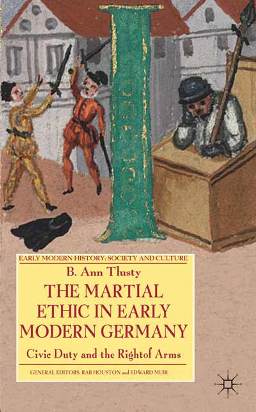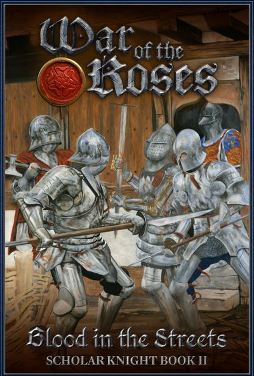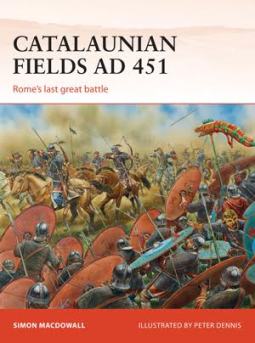How to Make Your Academic History Book Approachable to the Educated Lay Reader

Greetings academic editors, writers and publishers! I am an educated lay reader of academic history books.
I hear academic publishing is… differently profitable at the moment, so perhaps you want to have a think about how to engage more people like me.
Really there must be a lot of us — people who want to get at the detail, the evidence, the debate, and so find ourselves buying weighty academic tomes.
We’re military history buffs who want to get into not just of equipment and tactics, but logistics and administration and sooner or later get dragged into context. You can’t, for example, be fascinated by Count Belisarius without wanting to know more about Byzantine History. Take a look at Osprey, an entire publisher devoted to satisfying that need !
We’re architectural history hobbyists — people who tick off castles and great houses the way twitchers do rare birds — who want to put flesh on the crumbling bones of some corners of history not covered by reliable mass market books. And we’re local historians trying to make sense of musty documents, mounds in fields, and half forgotten traditions.
We’re also Historical Reenactors looking for very specific information on how things were or might have been. We’re Historical European Martial Artists (yes, HEMA is a thing! Modern people do study Medieval Martial Arts!), looking to contextualise the original martial arts manuals around which our lives revolve.
And we’re writers, looking for inspiration, or just building a storyworld for our characters to inhabit.
Many Black Gate readers must fall into at least one of these categories, and we sometimes get a million hits a month…
I am, of course, all of the above with the exception of “local historian” (since all of western history is my backyard). I’m also a former technical author — conveying technical information to novices used to be my trade — and an author who thinks about writing. So it might be worth your while — O mighty academic editor, writer or publisher! — to hear what I have to say.
Upfront, you don’t need to dumb down or jazz up. The whole point of academic books is that they are academic! Rather you need to stop shooting yourself in the collective feet. Working from the outside in, here’s how…

Let’s start with the easy stuff.
Price. Yes, I’m sure you have some clever algorithm that squeezes every last penny out of academics and academic libraries. The consequence of asking about the same price as a DVD boxed set is that you pretty much guarantee nobody else will ever buy your book new. Sure, that’s no disaster when the text is obscure or theoretical — A Derridian perspective on the Marxist Analysis of the Gendered Semiotics in the 1890s British Slate Industry is unlikely to find a home on many shelves, even if you give it away. However, e.g., had the Martial Culture in Early Modern Germany been about £30 rather than £60, a good proportion of exponents of German longsword would have bought it. (There are actually rather a lot of us.) There are easy ways to check if your book hits a hot topic, for example you could try googling it, or looking for active Facebook groups. Or ask the author who may be hiding a wider enthusiasm behind an academic demeanor.
Oh, and — here’s a hot tip — try pricing the ebook cheaper than used copies that will appear after a semester or so. People might actually be willing to pay for it.
Editions. Nobody seems to do this, but you should. Given everything is done digitally these days, how about creating some cheaper “reading editions”? Most of us don’t need the footnotes or even the bibliography. If it’s the ebook, you can even hack off the index. Serious professionals and libraries will still need all that. Those of us prepared to take the scholarship on trust, or undergraduates who just need to know what’s in the book, will generate additional sales. The same goes for translations. I’m a huge fan of William the Marshal, I treasure my copy of the contemporary account of his life. However, guess what? I just need the translation, not the original Anglo Norman French, not the translator’s notes. One William Marshal Facebook group has two thousand members. Imagine how many additional copies you could sell if you put it out print on demand at £9.99 rather than the £100 or so I paid.
Now we move into knottier territory — the actual contents and how you present them. First the easy stuff…
Ebooks. People read ebooks in a linear way. If you own an ebook reader, you’ll know it’s hard and inconvenient to flick between pages. It’s a bit like — and I’m trying to find a reference point that will make sense to those of you of a pre-digital mindset — oh, using an overhead projector, or that thing when you’re reading from a scroll but want to consult material at the very end. (You know. By candlelight. You Luddite.) For this reason, for the ebook version, please put the illustrations, charts, tables and maps in the text, roughly when they are relevant. Don’t put them at the end, where we really won’t see them. This is particularly important for maps, which you might consider inserting several times, whenever they are relevant.

Maps. Your maps are usually all but useless because they don’t contain any context. For example, a campaign map, or a map of trade routes, needs mountain ranges as well as rivers. Political maps don’t make much sense without geographical boundaries, and maps of — say religious affiliation or natural resources — are useless without the political ones.
Quotes from non-English sources. Please insist these are translated! Few laypeople know more than one additional language, and very few know Ancient Greek or Latin. (This is a good idea anyway, because scholars also get things wrong and should be made to spell out, or at least paraphrase, what they think a passage means. As an undergraduate, I once discovered a major flaw in a historian’s interpretation of a chronicle, one that changed the political meaning of some 14th century events.)
Words in foreign script. Not everybody is used to reading names, say, in the Greek or Arabic alphabet. This will be true even of some undergraduates, for example those on the History track who are delving into Byzantine history. Please provide a transliteration in the first instance, like this: αριστος (“aristos“).
Technical terms. Please insist that these are tersely explained on their first use, not least because they may not mean what the author thinks they mean. This is especially true of terms derived from other languages, such as Völkerwanderung. For similar reasons, if the book is larded with technical terms, please supply a glossary.

Now the more difficult matters, requiring actual effort from authors and editors. I’ll try to start with the less onerous stuff.
Paragraphs. Really! There’s this thing were you break up big blocks of text according to subject, or if you can’t do that, at least try breaking them up with one thought or point per paragraph. As a general rule of the thumb, a heuristic, even, is that if it looks like a wall of text then it is a wall of text.
Style. Please write in something approximating modern formal English. No sentence that is not a list should take up more than a third of a paragraph, or use more than one gerund (verb turned into a noun (see, I can do this, so so can you!)), or have more than two dependent clauses (some of the time). In general, it should be possible to read the text aloud without fainting due to oxygen starvation, and to listen to that reading with some comprehension.
Then one I’ve saved for last because it’s so important.
Unfamiliar People and Places. Guess what? Most anglophone readers are no more familiar with, say, Merovingian names than, say, the towns of provincial Middle America. After a while they blur, and the cognitive overhead makes the book unreadable. For example, “As with Guntram and Ingomer’s dispute…” is pretty useless if we met these gentlemen more than a few pages back. Try, “Just as when Guntram and Ingomer litigated over water rights…” If they’re returning characters, please also tag them, for example, “The patron was Chlodosind I, who we last met murdering his brother.”
It’s not rocket science. The older generation of scholars wrote, and continue to write, erudite books in human-readable elegant English. Don’t leave it to the amateur scholars to define the past, even if some of them are good at it.
M Harold Page is the Scottish author of The Wreck of the Marissa (Book 1 of the Eternal Dome of the Unknowable Series), an old-school space adventure yarn about a retired mercenary-turned-archaeologist dealing with “local difficulties” as he pursues his quest across the galaxy. His other titles include Swords vs Tanks (Charles Stross: “Holy ****!”) and Storyteller Tools: Outline from vision to finished novel without losing the magic. (Ken MacLeod: “…very useful in getting from ideas etc to plot and story.” Hannu Rajaniemi: “…find myself to coming back to [this] book in the early stages.”)